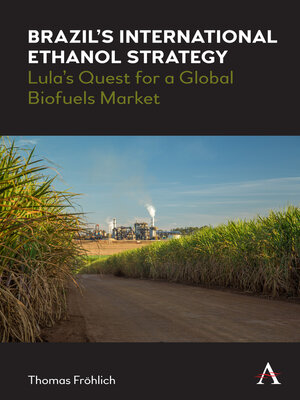Brazil's International Ethanol Strategy
ebook ∣ Lula's Quest for a Global Biofuels Market · Anthem Brazilian Studies
By Thomas Fröhlich

Sign up to save your library
With an OverDrive account, you can save your favorite libraries for at-a-glance information about availability. Find out more about OverDrive accounts.
Find this title in Libby, the library reading app by OverDrive.



Search for a digital library with this title
Title found at these libraries:
| Library Name | Distance |
|---|---|
| Loading... |
Under the governments of Lula da Silva and Dilma Rousseff, Brazil aimed at creating a global market for ethanol as a green transport fuel, and ethanol diplomacy became a signature component of Brazil's international insertion at the time. This study examines Brazil's international ethanol strategy and creates a comprehensive overview of the theoretical and practical approaches that Brazil undertook to promote ethanol as a tool to achieve energy security and combat climate change in a framework of South-South cooperation.
|Brazil, the world's largest sugar producer, supplies 16 per cent of its energy consumption and approximately three quarters of its transport fuels with sugarcane-based ethanol. From ca. 2003 until 2014, the country under the Workers' Party government aimed at creating a global market for ethanol. The time seemed right to steer foreign policy towards this goal due to a benevolent structural environment with global discussions about energy security, climate change, and South-South cooperation.
Within a neoclassical realist framework, this study examines why Brazil did not fully succeed in its ethanol diplomacy to create a global market for ethanol. The analysis covers three analytical levels: the bilateral with Brazil in power deficit, the bilateral with Brazil in power surplus, and the multilateral, represented in three empirical chapters, Brazil-US, Brazil-Mozambique, and Brazil's multilateral ethanol diplomacy, respectively. Each chapter finishes with a set of recommendations for political consideration.
This study also demonstrates how the theoretical approach of neoclassical realism can combine foreign policy output with international politics outcome research and is useful to analyse policy outside the hard security realm. It offers a basis for further research towards an understanding of Brazil's overall foreign policy and the foreign policies of other emerging powers.







